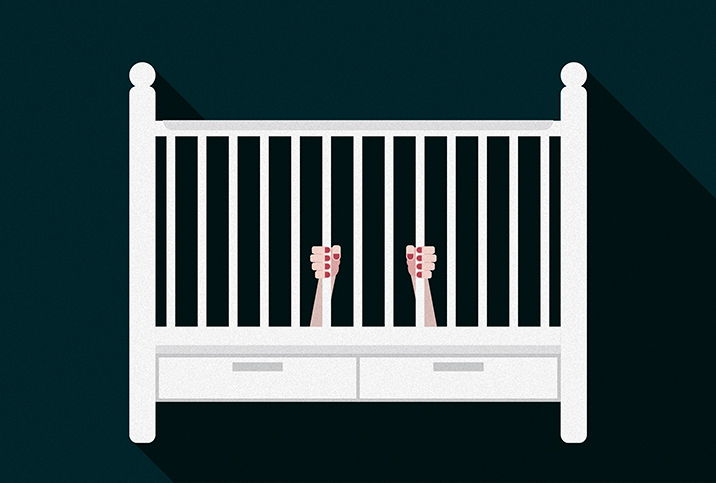Diagnosis Disclosure As A Partner With Mental Illness

Society largely overlooks mental health for a variety of reasons, sometimes simply not believing mental illness is real. You've likely heard the notion that depression, anxiety or other ailments are "all in your head."
This is a problem because mental illness is very real and can be all-consuming. Talking to a partner about it becomes daunting, as their reaction could vary widely. What if they see your mental illness diagnosis as too much of a burden?
No matter how scary it might seem, communication is a lifesaving strategy.
Educate yourself first
About 1 in 6 adults experience depression at some point, according to the Centers for Disease Control and Prevention. About 16 million adults in the United States are currently struggling with it. The upside of the illness being so common is that information is plentiful, and your partner may have an easier time understanding and accepting it. However, make sure you wade through the glut of information carefully to find the most accurate and helpful data.
Less common mental illnesses—such as bipolar disorder, schizophrenia and personality disorders—can prove as terrifying for your partner as they might for you. Your first impulse might be to sit down with your partner and present your diagnosis, but be aware these conditions carry stigmas because of overdramatized depictions. Additionally, finding accurate sources can be a little more difficult than with other conditions.
"In these situations, I tell my clients to think about themselves," said Kimberly Pisarcik, a licensed clinical social worker from Wilkes-Barre, Pennsylvania. "I ask them to think about how they are feeling at this moment as they process their diagnosis."
She explained patients are often scared, confused and misinformed about their new diagnosis. The trouble is partners will likely understand even less because they don't understand what you're feeling. They also don't have the benefit of a trained mental health professional to lean on for education, coping skills and advice.
"The bottom line is that you need to accept your mental health diagnosis before you discuss it with your partner because they will have many questions," Pisarcik said. "If you don't understand your health, it can be hard to explain this to your partner."
Don't isolate yourself
It can be tempting to retreat into the dark corners of your mind while trying to figure out what this diagnosis means, how to find help and what this might mean for your relationship.
"It's not uncommon for patients to experience the steps of grief after their diagnosis because they might feel like their life will never be the same," said Amelia Roeschlein, D.S.W., a licensed marriage and family therapist and consultant with the National Council for Mental Wellbeing in Washington, D.C. "Finding a support group can be so helpful for patients and their family because they can learn from others and these connections can help them to feel supported, which prevents isolating behaviors."
In addition to social withdrawal, fears about your mental health and its impact on your family can cause a unique set of anxieties. The longer you wait to discuss your health status, the more overwhelming the fears can become.
One helpful strategy is to remember that talking with your partner about your mental health isn't a one-time conversation. You don't need to spill it all in one sitting. You had the benefit of learning about your mental health one step at a time, so sitting down with your partner and explaining things the same way may seem more reassuring and less intimidating for both of you.
Take your time and make a plan
Once you've accepted your diagnosis and had time to fully educate yourself about your condition, and when you're ready, it's time to tell your partner. This doesn't mean you need to prepare a slideshow, create index cards or print out the latest studies. Rather, you need to be mentally prepared to have this conversation. You need to be able to accept your partner's response to this news, whatever that response might be. In an ideal world, your partner will be a rock and spend time asking you about your health and specific ways they can help.
Unfortunately, reality rarely mirrors imagination. To help manage expectations, voice concerns with your mental health professional. They can help you process these fears and play out different scenarios of how your partner might respond so you're better prepared.
Your mental health professional is also your first contact for resources that can help you communicate your condition and symptoms with your partner.
Don't be surprised if your partner needs as much time as you to fully process your diagnosis.
Turn the same analysis around and empathize with your partner, who has their own fears and perspective. Your partner might not be surprised that you have a mental illness diagnosis if they're aware you're seeking counseling and treatment, however, the specific diagnosis might cause a shock.
While it's important to be prepared for their reaction and able to give them resources to help them understand what's happening to you, it's equally important you understand what they're feeling, too. Don't be surprised if your partner needs as much time as you to fully process your diagnosis.
Regardless of how your partner responds to your diagnosis, you should never give up on communication. Your partner may need time, but you can help them to understand by sharing articles and links to support groups. A smart suggestion is to request a group session with your mental health professional so your partner can have a safe space to present any concerns and get some answers they need to support you and their own mental health as well.


















